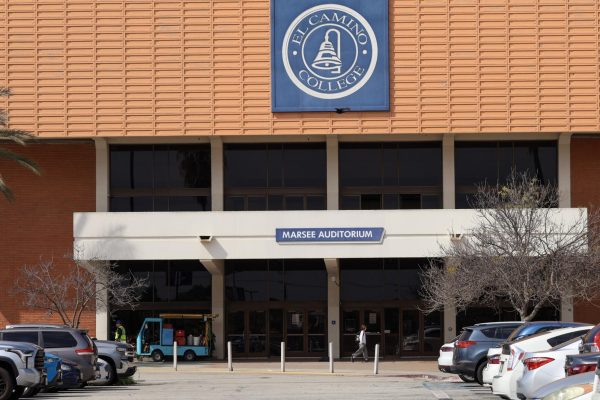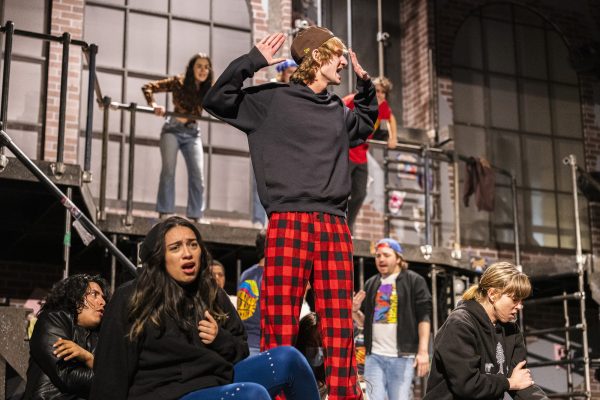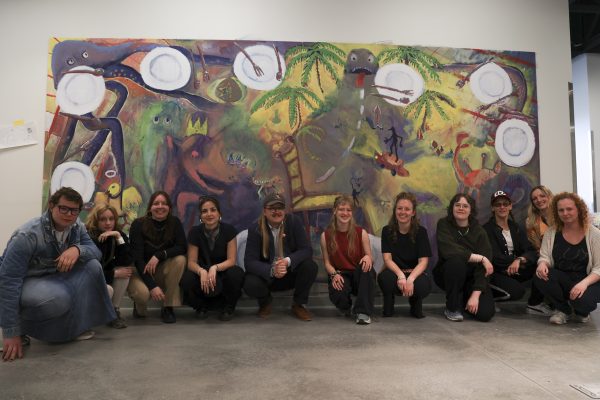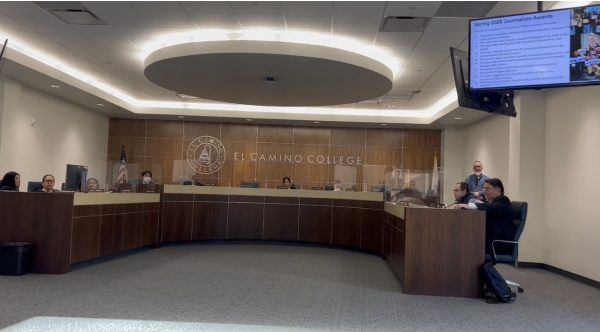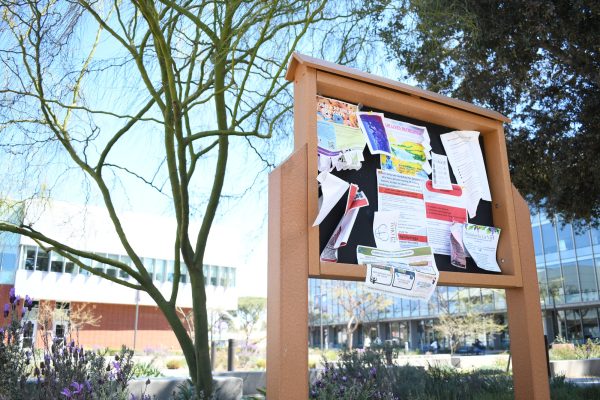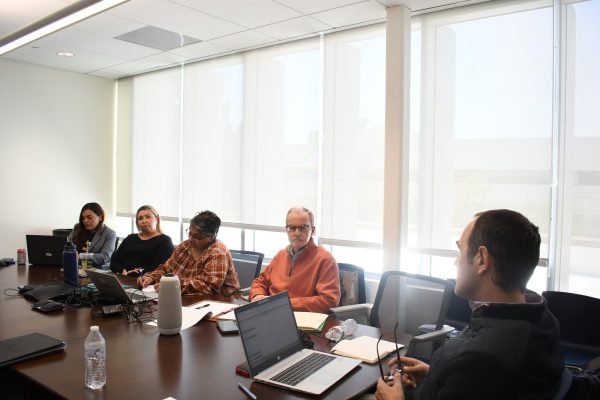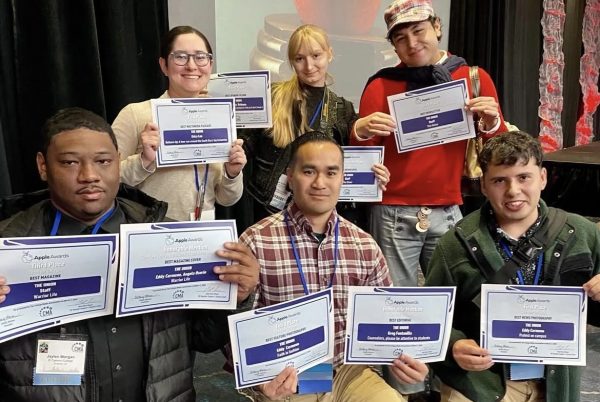Stories from our communities: Part five
Nearly one year into the Coronavirus pandemic, our reporters have been covering the human experience and El Camino College from their own homes rather than the newsroom for almost two semesters. As the world begins the road to recovery from COVID-19, there are still business owners and everyday people who are suffering from shut-downs emotionally and financially.
This is a collaborative piece, showcasing the people within our communities who are working through the pandemic in whatever way they can. Parts one, two, three and four of this series can be found on eccunion.com.
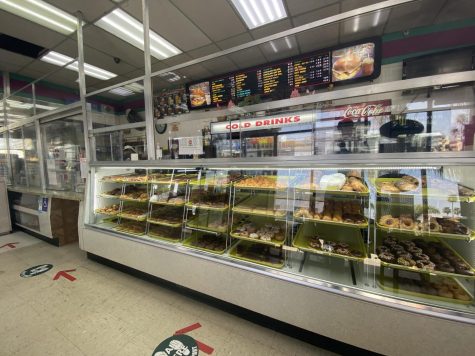
Noon| Jay’s Donuts, Lomita
By: Manuel Guzman
Sitting behind a glass display panel lay neatly organized rows of golden brown doughnuts generously glazed with various flavors and toppings including chocolate, strawberry, vanilla and maple. The doughnuts are made fresh every morning at 4 a.m. by Jay Maraby, the 66-year old owner and operator of Jay’s Donuts which sits on Pacific Coast Highway in the city of Lomita.
A chunk of the doughnut shop’s clientele were the local businesses that would pick up their portable pots of coffee or boxes of donuts. Ever since the pandemic started, Maraby has had to rely on his regulars to keep his doors open.
“Everybody is down, everybody is feeling it,” Maraby said as he stood behind the newly installed clear plastic wall he had built during the pandemic.
Since the opening of Jay’s Donuts in 1986, Maraby was used to having several of his regulars meet and sit inside of his shop enjoying a cup of coffee while reading a newspaper, now the shop is following the Centers for Disease Control and Prevention guidelines and is only allowing one person at a time inside the shop to order.
“We pick up some donuts every Friday since I started working from home, it became a nice little tradition and something we look forward to,” Jairo Torres, 36 year-old patron at Jay’s Donuts said.
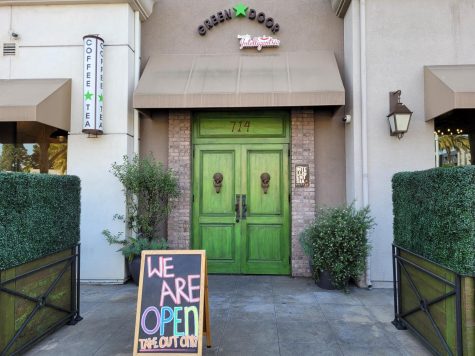
10 a.m. | GREENDOOR, Carson
By: Maverick Marcellana
Across Carson City Hall and next to iHop lies a small coffee shop with a green theme in their exterior and interior design.
COVID-19 took a toll on GREENDOOR’s business when it first spread in the United States in 2020. The restaurant had to begin following social distancing guidelines and make their beverages take-out only.
Jenny Tran, assistant manager and barista at GREENDOOR, says that they are “lucky” to still be in business and that a lot of their customer base stems from students that come over for some coffee.
Tran said that there are enough people showing up to the place “to keep [them] afloat.”
GREENDOOR is part of the third wave coffee movement where they make coffee open to anyone who would like to try something the public hasn’t tried before.
“We do everything in house so a lot of detail goes into that,” Tran said.
Darren Manzado is a friend of Tran’s and appreciates the work she does for GREENDOOR.
“Jenny offers wonderful hospitality that allows people to feel appreciated not as a customer but as a person,” Manzado said.
With cases trending down and vaccines rolling out nationwide, California is slowly starting to reopen, still taking the necessary precautions.
“As the cases go down, we should be reopening,” Tran said.
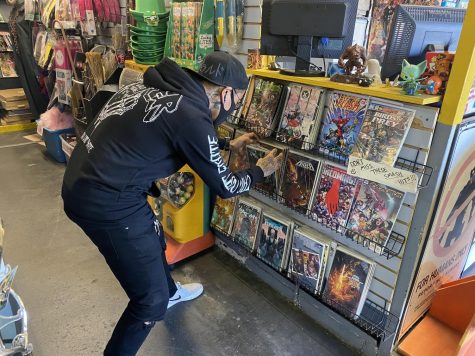
4:37 p.m. | Dreamworld Comics, Culver City
By: Khoury Williams
Located on a busy intersection between Washington Place and South Centinela Avenue in Culver City, lies Dreamworld Comics, a haven for comic book fans and collectors alike.
Besides selling comic books, manga, collectibles and costumes, Dreamworld Comics also hosts numerous events and is viewed as a welcoming establishment for both new and expert comic book enthusiasts. However, due to the pandemic, events are no longer held and Dreamworld Comics had to accommodate for their customers’ safety while also keeping customer satisfaction high.
A man donning a mask and covered in tattoos walks around the store with an excited look in his eyes. This man is Gerald Sotelo, a cashier at Dreamworld Comics.
“During COVID, sometimes it ranges day-to-day where I get two or three customers to 10-15 customers a day. Usually, it depends on the issues [in stock]. We get more customers when new issues arrive,” Sotelo said. “We’ve also had to adhere to social distancing protocols and encourage our curbside pick-up service to customers.”
Sotelo has been working at Dreamworld Comics since Oct. 2020, but as an avid comic book and anime fan himself, he’s held multiple comic bookstore jobs throughout the years and shares similar hardships that all comic book-centric stores have faced since the beginning of the pandemic.
“Major publishers like DC and Marvel had shut down for two months with the lockdown orders. Those publishers lost money along with most comic book stores, then soon after lockdown restrictions were lifted, they [DC and Marvel] pushed everything to be released as soon as possible. New issues of DC and Marvel comics came out almost every day over the summer, which brought a lot of business back to the comic bookstores, but now it’s slowly dying down.”
Although business at Dreamworld Comics has had its ups and downs during the pandemic, Sotelo shares that besides new releases, it’s often the current pop-culture zeitgeist that brings customers in.
“Lately we get people coming in asking about shows like ‘WandaVision’ and the comics that have inspired it because they want to read about it.”
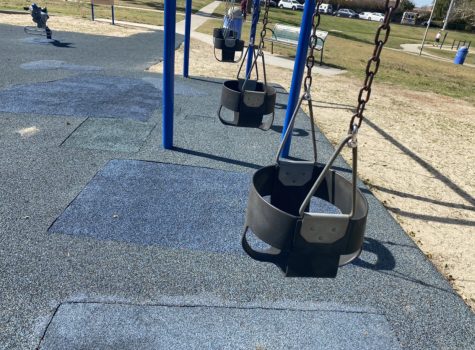
2:17 p.m | Victor Park, Torrance
By: Zoha Jan
The playgrounds in Torrance are open for the community to visit, so the park’s previous emptiness is gradually drifting away.
Families are returning to the park after the recent reopening by the City of Torrance on Oct. 5, 2020. All City of Torrance playgrounds were closed to the public due to the spread of COVID-19 on March 5, 2020.
Daycare worker Ashtaa Gill, 34 year-old came to the reopened while walking her golden retriever Ruby
“I used to come to the park every day with Ruby and my kids,” Gill said. “Due to the virus [COVID-19] I try not to come often but I have to be active in some way.”
Gill said she tries to run for 15 minutes near her house because she was quarantining for months.
“Honestly I was scared to step outside my house because I always spot no maskers,” Gill said.
Prior to COVID-19, Gill used to take her 8 and 10-year-old daughters every day to the park after school. The playground was a way to make her daughters happy.
“My girls loved making new friends at the playground,” Gill said. “There are still kids playing but I don’t think it is still safe.”
Going to the park was also a way to help her daughters feel active by running around the playground.
There is less activity to be done at home and it is getting difficult for her to create activities for her daughters, Gill said.
The playground is less crowded than usual, only a couple of the families can be seen using the equipment at the park.
“It is open for the community but I am not sure if the playground is being sanitized often,” Gill said.
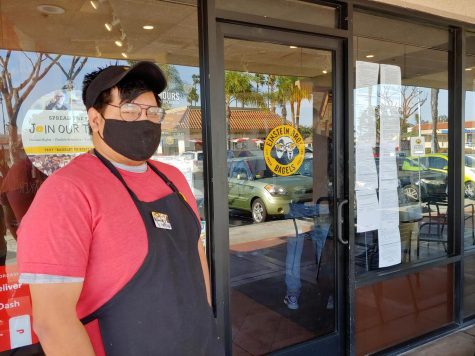
9:30am| Einstein Bros. Bagels, Long Beach
By: Shirene McKinney
Jonathan Jaramillo, 28 year-old Long Beach resident and videographer watched his freelance job prospects dry up as coronavirus cases were on the rise in Long Beach. He has been working at Einstein Bros. Bagels for the past four months, he is grateful for his job but it is not what he had envisioned for himself.
“This generation, it kind of feels like we got robbed of the future, what was intended to be the greatest days of our lives, we’re just stuck in our homes”
Like many other local businesses, Einstein Bros. Bagels had to make adjustments to their opening hours. In the four months he’s been working, Jaramillo’s seen the business volume drastically fluctuate, and the store hours change to minimize losses and adapt.
“Before we used to close at 3 p.m., then 1 p.m. and now we close at 2 p.m.” Jaramillo said.
Jaramillo enjoys earning an income and the break that work gives him from feeling stuck at home but also worries about contracting the virus during his daily interactions as he takes the bus or uses UBER to get to work.
“You never really know when it comes to these public spaces, you never know who has it,” Jaramillo said.
He also said he worries about there being another shutdown.
“I worry about money, I don’t know if we will be hit with another wave; their gonna have to lay us off”
Jaramillo said these worries have him concerned about the toll the pandemic has on his economic stability and mental health, but he tries to remain optimistic of the positive takeaways these trying times have to offer.
“Once the thunderstorms clear, I do think that my generation is gonna prosper, we are really gonna have a motivation to thrive in life,” Jaramillo said.
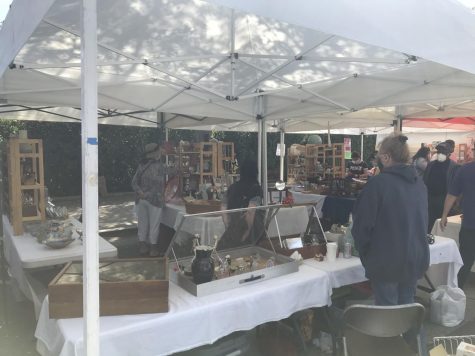
12:47 p.m.| Torrance Street Fair, Torrance
By: Nicholas Broadhead
The fourth Sunday in a month is also the day the Torrance Street Fair opens in Old Torrance, with many booths for people to buy antiques and clothing, as well as eat something from a local restaurant or the Torrance Bakery.
Robyn Merrill, retired electrical engineer, has been running a tent at the Torrance Street Fair for the past three years with a friend of hers as a hobby, selling what she has bought from auctions.
I have been selling collectables like yardrows, pottery and antique glass that’s over 100 years old, Merrill said.
But following the current COVID-19 pandemic, Merrill has had to slow the selling portion of her hobby, not only because of the closures many fairs faced, but for personal reasons.
“There’s a few months I haven’t come because of COVID and it’s spikes, and that’s mainly because my husband has cancer, so I don’t want to take the chance,” Merrill said.
During these moments of sales standstill, Merrill continued to buy her usual items from online auctions.
“It’s an addiction so to speak,” Merrill said.
Even though she faced a slower selling process due to the pandemic, Merrill recently has been able to make sales with those that want the chance to go out and spend money.
“To a lot of them, they haven’t been out to buy, so when they get a chance to buy, they buy,” Merrill said.


